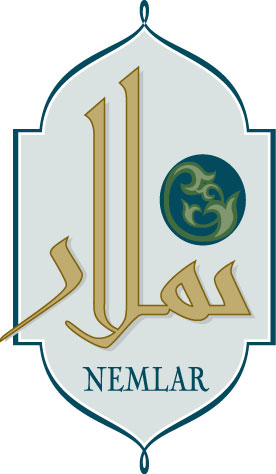
- Home
- Mission
- Consortium
- نبذة عن المشروع
- رسالة المشروع
- جمعية ميدار
- MEDAR Reports
- MEDAR Conference
- MEDAR Knowledge Base
- BLARK for Arabic
- Publications
- Newsletter
- Network
- Media
- Arabic HLT
- The NEMLAR project
- NEMLAR Reports
- Other links
- Internal Forum
Contact:
nemlar@hum.ku.dk
Mission
The development of language resources and tools for the Arabic language is important for the economy in the Arab countries; but at the same time it is important for the culture. By focusing on Arabic language technology and making both the technology and content available in Arabic, the use of Arabic will grow and the request for foreign language information will decrease. At the same time language technology can help access information in foreign languages, even without a very good knowledge of these languages. And finally, it can help spread Arabic ideas and culture to non-Arabic languages.
The NEMLAR project, 2003-2005,was funded by the European Commission with the goal of creating a cooperation between European actors and actors in the Mediterranean region with the purpose of advancing the state of language technology for Arabic and other regional languages. See medar.info/The_Nemlar_Project/index.html
The goals of the NEMLAR project was the production and availability of shareable LRs and tools, the advancement of Arabic language technology, and the collaboration between countries towards these goals. MEDAR shares this mission.
The MEDAR project
MEDAR addresses International Cooperation between the EU and the Mediterranean region on Speech and Language Technologies for Arabic. MEDAR is structured around 3 pillars, 4 main objectives, and a number of instruments.
The 3 pillars are
1) producing a knowledge base on Human
Language Technology (HLT) players, existing language resources
(LRs) and processing tools, activities and products for Arabic,
2) designing a strong cooperation roadmap between EU and Arabic countries, within the Arabic countries, and between academia and industry, and
3) focusing on Machine Translation (MT) and Multilingual Information Retrieval (MLIR) for which required technology components, LRs, benchmarking methodologies will be identified.
The 4 objectives are 1) consolidating a network of players in all areas of HLT, 2) developing the Cooperation Roadmap based on a clear picture of the foreseeable technological trends, market potentials, and cooperation possibilities, 3) Updating the Basic Language Resource Kit: the minimum set of resources and tools necessary for carrying out research and training on LRs and HLT, with a focus on MT and MLIR and 4) Supporting the development of tools and resources, in particular MT and MLIR on the basis of partners technologies and open source code (e.g. Statistical MT, MLIR, and speech recognition) and the framework for their benchmarking.
A variety of instruments will be used to achieve the objectives: Surveys will be conducted as well as market analysis. Partners' background will be exploited to identify the best multilingual open-source tools to customize to Arabic. Expertise on evaluation within the consortium will create the right benchmarking framework. Key achievements will be highlighted for each strategic partnership in addition to the actions to be taken. Human resources will be at the heart of our recommendations. Information will be disseminated through e.g. website and e-newsletter, and a major conference on LRs, tools, and Evaluation for Arabic.
MEDAR is supported by the European Commission's ICT programme and is running from
February 1st 2008 until July 31st 2010